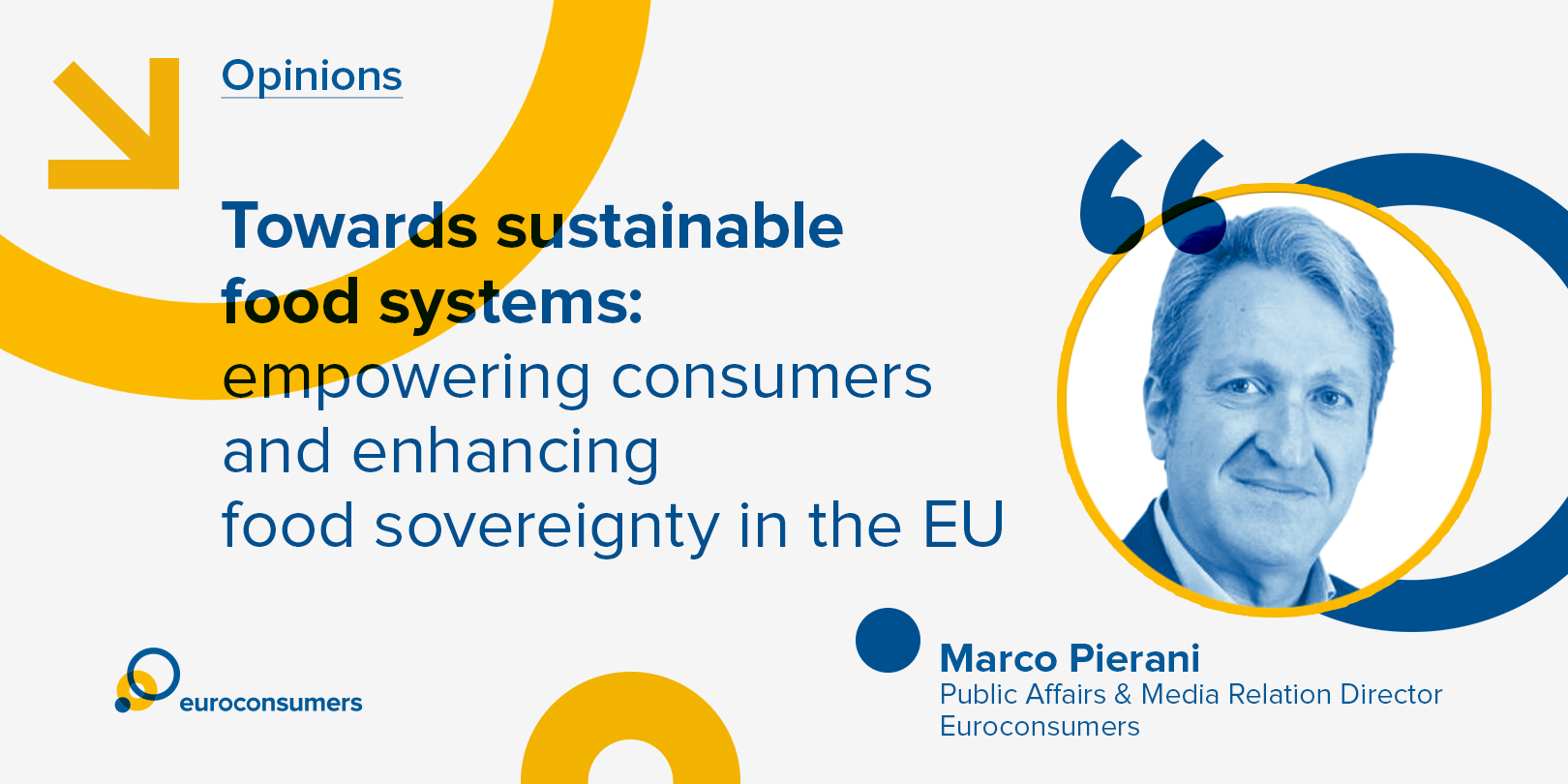This website uses cookies so that we can provide you with the best user experience possible. Cookie information is stored in your browser and performs functions such as recognising you when you return to our website and helping our team to understand which sections of the website you find most interesting and useful.
Towards sustainable food systems: empowering consumers and enhancing food sovereignty in the EU

An open debate on EU food sovereignty is therefore both welcome and timely. However, it’s essential to understand that food sovereignty’s core aim is to empower communities to control their food systems holistically, taking full account of the social, environmental and economic aspects. The goal is a fair, just and sustainable food system for all, not merely maximising food production.
On the other hand, advocating a novel form of EU protectionism would be misguided. Global trade has brought tangible benefits, though not without distortions, including in the realm of food supply. The real issue is the lack of supply chain diversification, exacerbated by the ongoing war. Strengthening internal EU resources and creating a diversified, robust internal market is key, not solely reducing imports.
Crucial role of consumers
However, all of us, as consumers, can also play a crucial role. Reducing food waste and adopting sustainable diets has a positive impact on health, climate and food security. Many consumers are willing to make these changes, like consuming less meat and more fruits, vegetables and pulses. To illustrate the power of dietary shift, Test-Achats- our Belgium affiliate consumer organisation – has created an effective chart which shows that replacing meat (e.g., beef in a chili recipe) is good for the climate, for health and for our wallets.
Consumers can evolve: from just weak individuals in need of protection to active protagonists driving together sustainability with their critical mass. It is no longer a theoretical or elitist concept, but a practical approach where their choices shape a balanced, responsible market for the future. Achieving these changes requires of course action from regulators, food producers and retailers to encourage healthier and sustainable choices.
Transformation on the horizon?
Europeans are calling for transformative food systems. They are speaking for the environment, animal welfare and improvements in pesticide use. It is paramount to strike a balance between sustainability and shared cultural traditions that food brings to our lives, so that the pleasure of gathering in conviviality around a sustainable meal enhances the experience. These two aspects should pull together rather than apart.
A further issue is merging innovation with culinary tradition; highly innovative supply chains and products challenge social acceptance (how do you feel about insect flours or cultivated meat?) and need to be combined with the products we have always known and which are made using traditional methods.
In conclusion, addressing EU food affordability and security requires a multifaceted approach involving systemic changes and individual action, in order to create a sustainable and inclusive food system for everyone.
We will share our positions and viewpoints on this intriguing current debate during the European Economic and Social Committee conference on September 26, which will be live-streamed on this website.
Marco Pierani, Director Public Affairs & Media Relations, Euroconsumers


